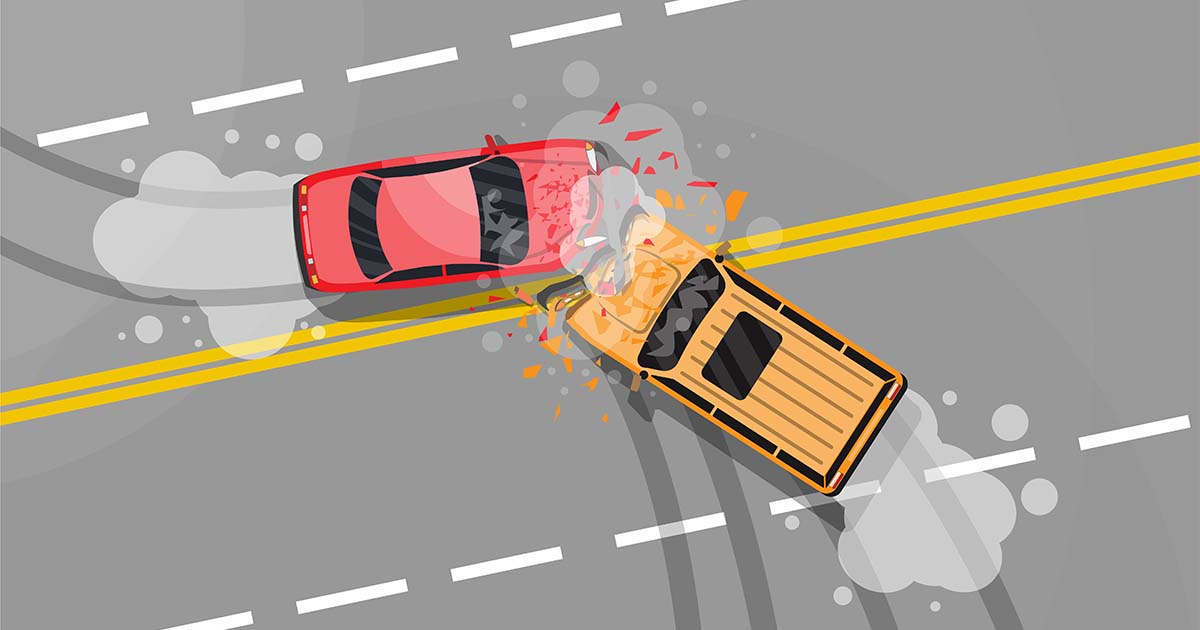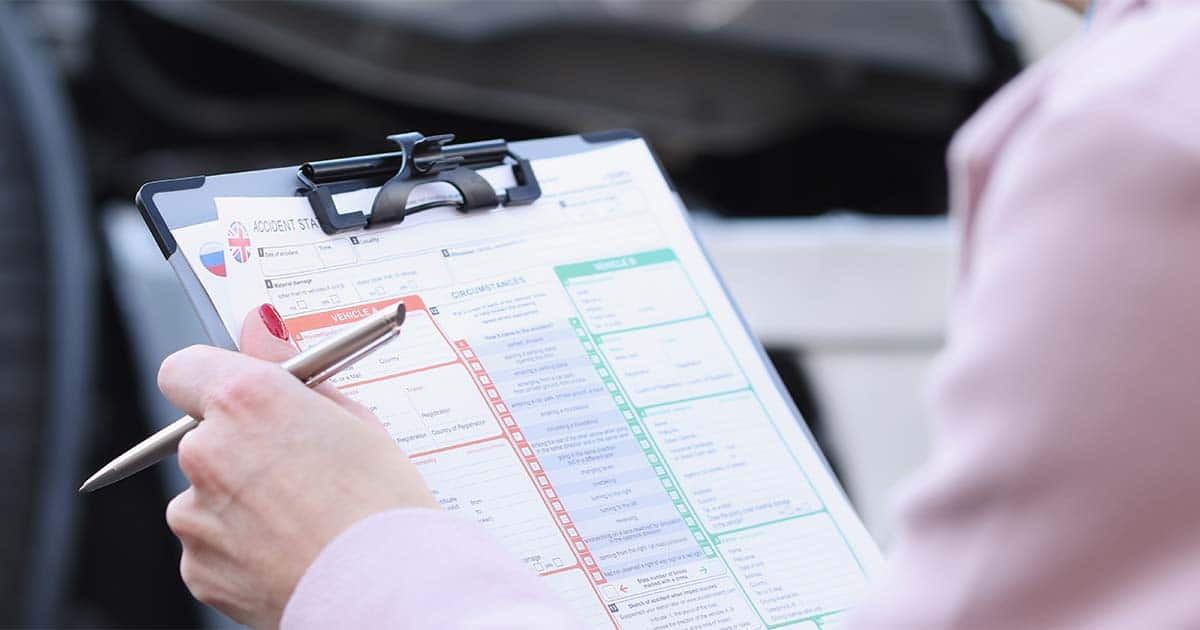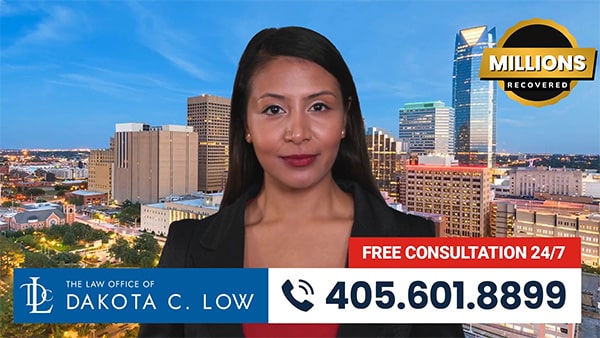After an Accident, You Must File a Claim With Your Insurance Company.
It can be difficult to know what to do after being involved in a car accident. All of a sudden, you’re dealing with a whole new set of issues, from getting medical help to dealing with the cops. After a car accident, one of the things you shouldn’t neglect — or put off — is filing an insurance claim. The sooner you get started, the sooner you’ll be able to find a resolution and go on with your life.
You can learn how to report an accident to an auto insurance provider, how to file a claim to your insurance company in Oklahoma, and what to do if your claim is denied.
How to notify an insurance company about an accident
It’s important to start filing your auto insurance claim as soon as you, any passengers, and your vehicle are out of harm’s way and no one needs immediate medical attention. Damages are the responsibility of the at-fault driver and their insurer in Oklahoma. Even if you aren’t at fault, you should notify your own insurance carrier about the issue.
However, calling your insurance provider to report a car accident is not the first step. To begin, you’ll need to gather some crucial information. The following are the steps to reporting an accident to your insurance company:
After a Car Accident, How to File a Claim to Your Insurance
- Gather proof and exchange insurance information. Take pictures with your phone’s camera.
- Obtain a copy of the police report.
- Make contact with your insurance company.
- Comply with the insurance company’s guidelines.
- Schedule a meeting with your insurance adjustor.
- Save all receipts for any expenses incurred during the process.
1. Gather proof and exchange insurance information.
Takedown the other driver’s name and contact information, as well as the make and model of their vehicle, the state and license plate number, and their insurance company and policy number. Obtain information from other people who were involved in the traffic collision or any witnesses, including comments about what happened, if feasible. Photograph the accident site with your smartphone or camera, capturing the outside and inside of your automobile, as well as the other vehicle (s). Take note of the weather, date, and time of day as well. Note: At the scene of the collision, do not acknowledge fault or blame other drivers.
2. Obtain a copy of the police report.
Traffic accident situations are frequently attended by the local police. They’ll also gather information and statements, and a police report on the accident will be produced in the end. That report is frequently required as part of any auto insurance claim process, particularly when fault must be assessed. You’ll have to rely on the information you gathered yourself if the cops don’t show up at the accident scene.
3. Get in touch with your insurance provider.
Your insurance company’s phone number is usually printed on your insurance card. Your insurer’s website may also have contact information. Furthermore, most major insurance companies have apps that make making an insurance claim following a car accident much easier.
4. Follow your agent’s directions.
You’ll be connected with an agent who will begin the process of filing your auto insurance claim. Find out how much time you have to file claims, resolve disputes, and submit bills for reimbursement; when the insurance company will respond to your claim; whether you should contact the other driver’s insurance company; whether you need to get estimates on the damage to your vehicle; and what your auto insurance covers, such as rental cars, towing and roadside service, and medical bills. Make sure your insurance company has your current contact information, including your phone number, mailing address, and email address, before you hang up.
5. Make an appointment with a claims adjuster from your insurance company.
After notifying your insurance carrier, the following step is to schedule a time and location for a claims adjuster to inspect your vehicle and evaluate the amount of repair work that needs to be done. The examination may take place at the auto body shop where your automobile was towed if it was not drivable after the accident. If the adjuster determines that your car requires repairs that cost more than 60% of what they believe it is worth in Oklahoma, they may declare it a total loss.
6. Keep your receipts safe.
Auto insurance claims can take a long time to resolve, especially if there is a disagreement about who was at blame. Keep all invoices for auto repairs, rental car fees, transit expenditures paid because you didn’t have a car, medical bills incurred as a result of the traffic accident, and any other charges you believe may be applicable. You may be able to obtain reimbursement for some or all of those expenditures depending on your insurance policy and who was at fault.
How long do you have to make a claim following a vehicle accident?

The amount of time you have after a car accident to file a claim with an insurance company is determined by the carrier and your policy. Any insurance provider, however, will need you to report an accident as quickly as possible, or within a reasonable period of time. Depending on your circumstances, you should read that as a few days, possibly a week or two.
It’s critical not to waste any time. Keep in mind that insurance companies make money by limiting payouts. Give them no reason to reject your claim. Read more about the Statute of Limitations in Oklahoma Personal Injury Claims.
When should you not file a claim to your auto insurance?
There are a few instances in which filing an auto insurance claim is not recommended. You may not want to report a single-car accident if no one was wounded, no one’s property was damaged, and the damage to your own vehicle would cost less than the deductible on your auto insurance policy. Your monthly premiums may increase if you use your auto insurance. If your traffic accident does not fall into that narrow group, you should contact your insurance company right once.
Do you have to give your insurance company a recorded statement?
You are not obligated to give any insurance company a recorded statement, regardless of what they may claim. Although it may not appear unusual, insurers can utilize these recordings to deny or reduce your vehicle accident insurance claim payment. If someone claiming to be from insurance reaches you and asks to record your statement, politely decline and contact a car accident attorney as soon as possible.
Should you contact the insurance company of the other driver?
It’s crucial to keep in mind that the other driver’s insurance company primarily cares about protecting their client and reducing your payout. Your initial call should be to your own insurance company, which is responsible for protecting your interests. The next phone contact you should make is to an attorney who can protect your rights during the vehicle insurance claims procedure. Before speaking with a vehicle accident attorney, don’t agree to be filmed or sign anything that the other driver’s insurer provides you.
What happens during an auto insurance claim?
The complete vehicle insurance claim process varies depending on your unique situation, however the following is the fundamental order of events:
- A car collision. Check to discover whether anyone requires immediate medical assistance before proceeding to a safe location.
- Gathering information and evidence Gather contact and insurance information, take witness accounts, and picture the accident area if possible.
- Speaking with the cops. Give the cops your information and answer their inquiries if they arrive. Inquire as to when their report will be ready and how they may obtain it.
- Notifying your insurance provider. Contact your insurer as soon as possible to alert them of the traffic accident. Find out what your policy covers and what steps you need to do next. Ask if you need to utilize a specialized service if your automobile needs to be towed.
- Getting in touch with a lawyer. Although you can call a lawyer at any point during the process, it will be easier for a car accident lawyer to assist you if you contact them sooner rather than later.
- A claims adjuster inspects the claim. Your insurance company will want to evaluate your damaged vehicle as soon as possible. If at all possible, obtain preliminary estimates for the work required to restore the vehicle to its pre-accident condition. You can then compare them to the figure provided by the insurance company. But don’t start working just yet.
- The approval of your insurance claim. If your claim isn’t refused, your insurer will tell you what they think needs to be fixed and how much it will cost. If it’s less than the auto body shop’s estimate of repair costs, the shop and your insurer may have to haggle a bit longer. If you have medical costs, they will be covered up to the policy’s limitations before your health insurance kicks in. Your motor insurance policy’s deductibles apply, so you’ll have to pay anything out of pocket. You may need legal assistance at this time to ensure that you receive the vehicle insurance payout that you believe is just.
- Automobile maintenance. Your car will be repaired once the repair charges have been agreed upon. You are not required by Oklahoma law to use the body shop recommended by your insurance company, but if you insist on using your own technician, you may face more paperwork and delays.
- Keeping track of the settlement. Keep any receipts from the traffic collision, as well as proof of your automobile accident insurance claim payment. You could need them in the future for tax purposes.
What should you do if your auto insurance company denies your claim?
There’s no guarantee that your claim will be honored by an insurer. An insurance claim may be denied for a variety of reasons, including:
- Fraud.
The insurance company claims you are lying or purposefully misrepresenting a traffic accident for personal gain. - Dispute over liability.
The insurance claims that their policyholder is not at fault, or that the damages and/or injuries you allege were not caused by the vehicle accident. - A claim that isn’t covered under the policy.
Your motor insurance policy does not cover what you’re asking for, according to insurance. - The claimant did not adhere to the policy’s guidelines.
The insurance company claims that your actions prior to or during the accident were in violation of the policy’s rules, implying that you breached the contract. - Premiums that have not been paid or coverage that has been terminated.
They missed payments, the policy lapsed, and there was no coverage at the time of the accident, according to the insurer. - Notification was received late.
The insurance company claims they were not informed of the accident in a timely manner and hence were unable to investigate it.
If your vehicle accident claim is denied by an insurance company, your best choice is to hire a lawyer to represent you. And gathering and preserving as much information on the accident as possible is the surest method to aid your claim. That’s why gathering evidence at the scene of an accident is so critical. For example, if the other driver’s insurance denies that their policyholder is at blame, the photos you snapped or the statements you obtained immediately after the collision may prove you correct – even if you have to file a lawsuit.
An insurance firm may behave in bad faith at times. That’s when they unjustly deny or limit coverage for a legitimate claim, usually just to get out of it. Stalking, lowballing, failing to communicate benefits, and even abuse are examples of bad-faith techniques. Insurance companies are well aware that many people lack the financial means to wait for a settlement or to go to court. In these instances, the only way to receive fair treatment is to hire an experienced law firm to go up against the insurer’s legal team.
Suggestions for resolving a car accident claim

- At the scene of the accident, don’t acknowledge blame or accuse anyone else. Following a vehicle accident, emotions can run high, and people are often unable to think properly. Such admissions, though, can be used against you.
- Avoid discussing your automobile accident on social media. Your comments, even if you don’t think they’re meant to be taken seriously, can be used against you.
- File a claim to your auto insurance as soon as possible. The longer you wait, the more likely your claim will be rejected.
- Consult a lawyer before agreeing to record a statement or sign any paperwork for an insurance company.
- Do your best to gather evidence at the scene of the traffic collision to back up your claim.
- Save all receipts for expenses linked to the accident, including medical bills and rental car fees.
- To the best of your abilities, adhere to your insurance company’s timetable and deadlines.
- If you want to protect your rights, you should employ an experienced attorney.
You may be compensated for medical bills, automobile repair costs, towing costs, rental car fees, and even lost pay, depending on the type of auto insurance you have and how excellent it is. Damages that aren’t covered by insurance might be sought in court from the at-fault driver.
Get assistance with your insurance claim.
It’s difficult enough to move on after an accident without having to deal with insurance companies. There’s no assurance you’ll get a fair vehicle accident Contact Dakota Low today for a free case review and consultation at 405.601.8899 or use our contact form if you’ve been in a car accident in Oklahoma. We’ll do everything we can to make sure you get the money you deserve.









